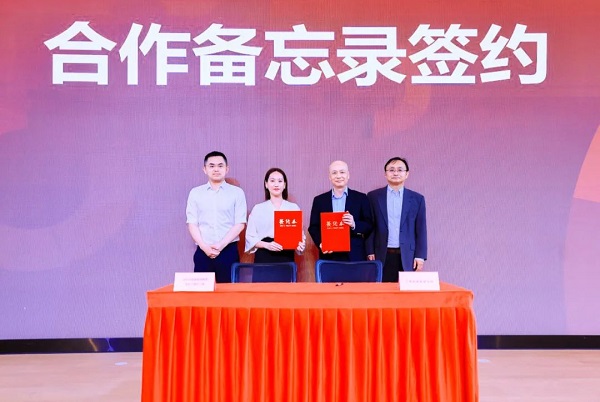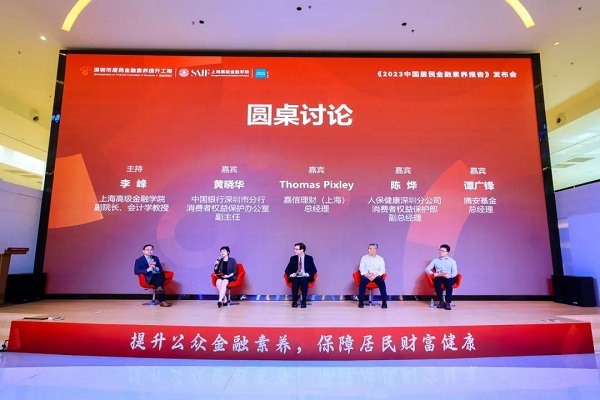On April 16th, the Launch Event of the 2023 China Residents Financial Literacy Report (the Report) was held in Shenzhen. The Report—jointly released by the Shanghai Advanced Institute of Finance (SAIF) of Shanghai Jiao Tong University (SJTU), Charles Schwab, and the Shenzhen Resident Financial Literacy Enhancement Project Office—marks the second annual report since the study's launch in 2022. The Report dynamically tracks Chinese residents' financial literacy levels across six dimensions, with a new addition this year examining the current status of investment and education efforts by financial institutions.

Notable attendees included representatives from various governmental and financial institutions, such as: the CPC Shenzhen Municipal Financial Committee, the China Securities Regulatory Commission, and the State Financial Supervision and Administration. During the event, Fei Wu, Professor of SAIF; and Yingxian Qi, Director of the Shenzhen Resident Financial Literacy Enhancement Project Office; signed a Memorandum of Cooperation to promote the development of the national financial literacy enhancement project through resource sharing and complementary advantages, aiming to create a replicable and operational financial paradigm adaptable to the requirements of the new era.

Fei Wu, the project leader, shared the Report's key findings, highlighting the uneven development of financial literacy levels among different groups and the general weakness in financial practices and knowledge application. He emphasized the positive correlation between financial literacy and education level, noting that financial literacy stems from both the learning of financial knowledge and the practice of financial activities. Wu stated that the ultimate goal of financial literacy development is to help residents improve their wealth management, with regulatory authorities coordinating and guiding the process, and educational institutions collaborating with financial service institutions and the community to systematically and comprehensively improve residents' financial literacy.

During the panel discussion, hosted by Professor Feng Li, participants shared their views and suggestions on financial literacy, financial consumer protection, and financial education from different perspectives. They acknowledged the long journey ahead in enhancing financial literacy and emphasized the importance of optimizing investment and education strategies based on diversified needs, understanding customers' deep-rooted needs on the basis of trust, and forming a bidirectional interaction between educators and the educated. This approach is seen as a win-win situation for both residents and financial service institutions, enhancing residents' financial literacy while bringing long-term business value to financial institutions.






